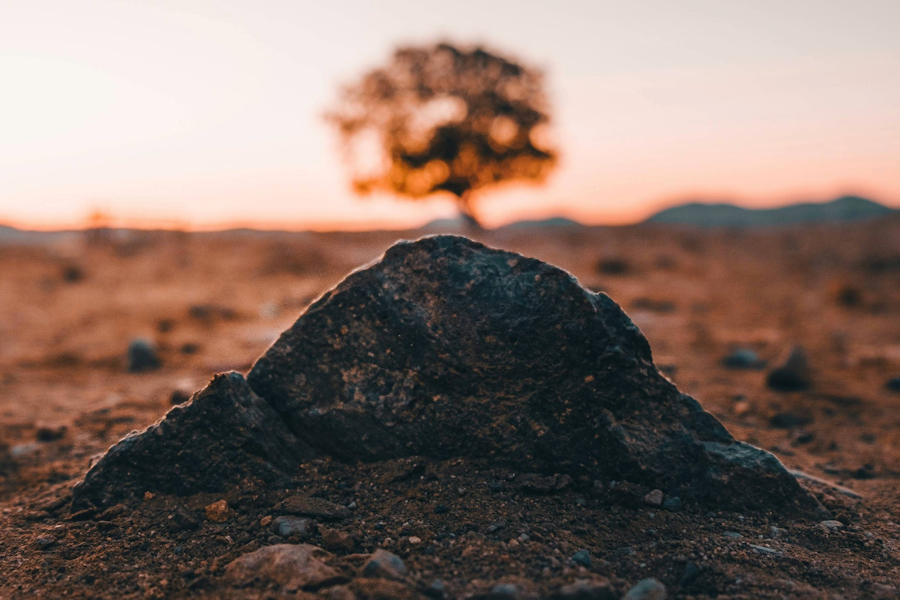Introductory Note:
Jason Byasee writes, “At their worst the monks can seem simply neurotic and world-denying. At their best they live a fulsome Christian life that witnesses to the rest of the church in their time and ours.”
The sayings of Desert Parents shared below might come across to us non-monks as extreme. But they understood human nature. They aimed to root out twisted desires in their own hearts so that they could love God and their neighbor more freely. Living in the bleak cave dwellings known as “cells” and practicing self-denial in many forms became a grave where anything false and unloving could die, and the love of God could spring up in them with new life.
Grace Pouch
Content Manager
Amma Theodora said, “Let us strive to enter the narrow gate. Just as the trees, if they have not stood before the winter’s storms cannot bear fruit, so it is with us; this present age is a storm and it is only through many trials and temptations that we can obtain an inheritance in the kingdom of heaven.”
John the Short said, “I will invent a man composed of all the virtues. … He would pray often, with sorrow of heart, keeping his speech pure, his eyes controlled. He would suffer injury without anger, remaining peaceful, and not rendering evil for evil, not looking out for the faults of others, nor puffing himself up, meekly subject to every creature,… He would receive good treatment with tranquility, working with his hands, watching at night, and during hunger and thirst, cold and nakedness and labor. He would live as though buried in a tomb and already dead, every day feeling death to be near him.”
A brother came to Scetis to visit Abba Moses and asked him, “Father, give me a word.” The old man said to him “Go, sit in your cell, and your cell will teach you everything.”
When a brother was troubled by thoughts of leaving the monastery, he told this to his abbot. He said, “Go and sit down, and entrust your body to your cell, as a man puts a precious possession in a safe, and do not go out of it. Then let your thoughts go where they will. Let your mind think what it likes, so long as it does not drive your body out of the cell.”
Sisois said, “Be despised; put your self-will behind your back and be free of worldly concerns, and you will have peace.”
When Macarius was living in Egypt, one day he came across a man who had brought a donkey to his cell and was stealing his possessions. As though he was a passer-by who did not live there, Macarius went up to the thief and helped him to load the beast, and sent him peaceably on his way, saying to himself, “We brought nothing into this world but the Lord gave; as he willed, so it is done: blessed be the Lord in all things.”
Two hermits lived together for many years without a quarrel. One said to the other, “Let’s have a quarrel with each other, as is the way of men.” The other answered, “I don’t know how a quarrel happens.” The first said, “Look here, I put a brick between us, and I say, That’s mine. Then you say, No, it’s mine. That is how you begin a quarrel.” So they put a brick between them, and one of them said, “That’s mine.” The other said, “No; it’s mine.” He answered, “Yes, it’s yours. Take it away.” They were unable to argue with each other.
Amma Syncletica said: “In the beginning there is struggle and a lot of work for those who come near to God. But after that there is indescribable joy. It is just like building a fire: at first it is smoky and your eyes water, but later you get the desired result. Thus we must kindle the divine fire within ourselves with tears and effort.”
[Syncletica] also said, “We must arm ourselves in every way against the demons. For they attack us from outside, and they also stir us up from within; and the soul is then like a ship when great waves break over it, and at the same time it sinks because the hold is too full. We are just like that: we lose as much by the exterior faults we commit as by the thoughts inside us. So we must watch for the attacks of men that come from outside us, and also repel the interior onslaughts of our thoughts.”
A brother at Scetis committed a fault. A council was called to which Abba Moses was invited, but he refused to go to it. Then the priest sent someone to say to him, ‘Come, for everyone is waiting for you.’ So he got up and went. He took a leaking jug, filled it with water and carried it with him. The others came out to meet him and said to him, ‘What is this, Father?’ The old man said to them, ‘My sins run out behind me, and I do not see them, and today I am coming to judge the errors of another.’ When they heard that they said no more to the brother but forgave him.
Material taken from The Sayings of the Desert Fathers. The Alphabetical Collection. Translated by Benedicta Ward, SLG (Kalamazoo: Cistercian Publications, 1975 [1984]), and The Desert Fathers: Sayings of the Early Christian Monks, Benedicta Ward, (London: Penguin Books, 2003. www.penguin.co.uk
Photo by Efe Yağız Soysal on Unsplash
Text First Published March 2003 · Last Featured on Renovare.org February 2024


